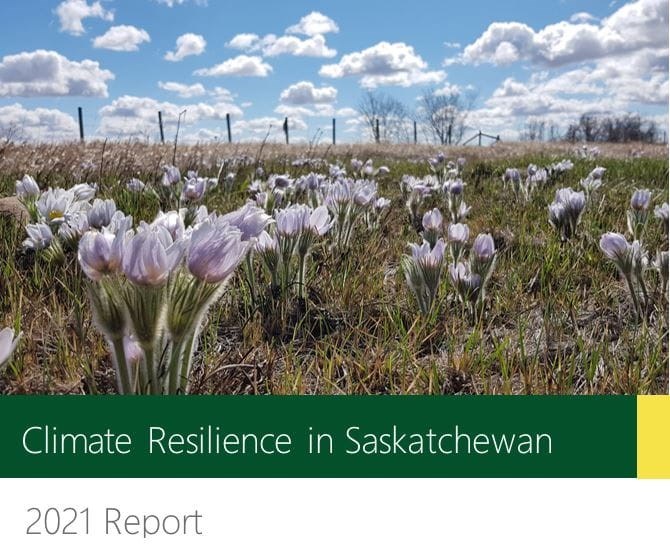In honour of Canadian Environment Week, the Government of Saskatchewan is pleased to release its 2021 climate resilience report, measuring the province's improvements toward building resilience to a changing global climate.
The third-annual Climate Resilience Measurement Framework - a commitment stemming from Saskatchewan's Prairie Resilience climate change strategy - focuses on improving provincial resilience in five key areas: natural systems, physical infrastructure, economic sustainability, community preparedness and human well-being.
The report provides the current status (good, fair or poor) on 25 measures of resilience, defined as the ability to cope with, adapt to and recover from climate-related stress and change.
"The majority of measures in Saskatchewan's climate resilience report are in good standing with none in poor standing," Environment Minister Warren Kaeding said. "Our government is proud of our progress in protecting Saskatchewan people and communities from a changing climate and we will continue to work to identify areas that may require more preparation."
Examples of specific measures that improved in 2020 include:
- a four per cent increase in agricultural land area with a 4R nutrient stewardship plan;
- almost 26 per cent of the province's generated electricity came from renewable energy sources, an increase of 1.6 per cent since 2019; and
- a 13 per cent increase in the number of wildfire operational pre-plans completed for "at-risk" northern communities - 72 per cent of communities now have pre-plans in place.
All measures under economic sustainability and human well-being are in good standing and have remained stable or improved from last year. In addition, we see the first set of measures reach their 2020 target timeframe, and three of these measures achieved their stated target. The province will continue to track and report on climate resilience measures to help identify areas of further focus and improvement, and to better understand Saskatchewan's resilience to climate change.
The 2021 report, Climate Resilience Measurement Framework and other components of the province's comprehensive climate change strategy are available at .




